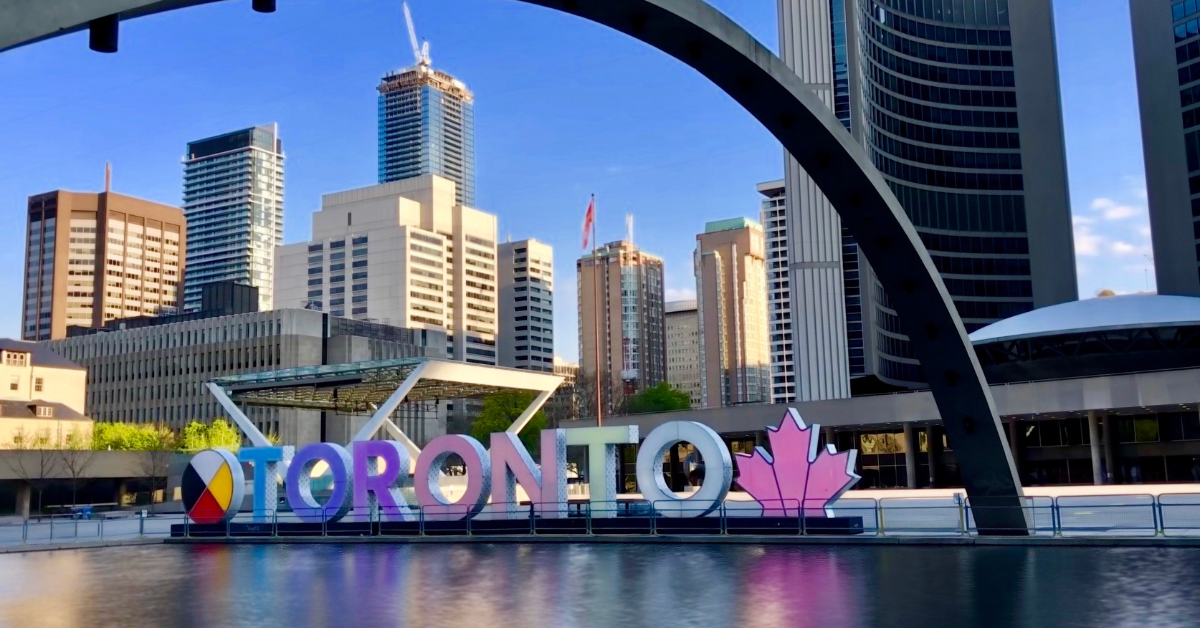Toronto, the largest city in Canada, has occasionally been represented with the Kanji transliteration “多倫多”, though the standard form in Japanese is “Toronto” in Katakana. This article explores not only the historical background of the Kanji representation but also the impressions Japanese people have of the city, including its lifestyle, cultural significance, and international presence.
The Kanji Representation “多倫多”
The Kanji representation “多倫多” originates from the Chinese practice of transliterating foreign place names. In Japanese, this form is not common, and the modern standard is “Toronto” in Katakana.
Kanji transliterations are based on sound rather than meaning, yet the characters in “多倫多” can evoke an image of a city rich in diversity, where many people gather.
| Writing Method | Example | Note |
|---|---|---|
| 多倫多 | Historical, Chinese transliteration | Not common in Japanese |
| トロント (Toronto) | Modern standard in Japanese | Used officially and in tourism |
Toronto as a City of Appeal
Toronto is the largest city in Canada, functioning as an economic, financial, artistic, and cultural hub. Over 200 ethnic groups coexist here, making diversity one of its strongest appeals.
Key Features
- Financial district as the core of Canada’s economy
- University of Toronto and other leading institutions of higher education
- Toronto International Film Festival, one of the most influential in the world
- CN Tower and Lake Ontario as major landmarks
| Field | Characteristic | Global Recognition |
|---|---|---|
| Economy | Financial and business hub of Canada | High ranking as a world city |
| Culture | Film festivals, art, and music | Strong international reputation |
| Tourism | Balance of nature and city life | Gateway to Niagara Falls |
The Image of Toronto Among Japanese People
Positive Impressions
- A city where multiculturalism thrives
- Relatively safe and comfortable to live in
- Popular destination for study abroad and tourism
- Recognized for arts, film, and music
Negative Impressions
- Harsh and cold winters
- High cost of living
- Long travel times due to the city’s large scale
| Aspect | Positive | Negative |
|---|---|---|
| Climate | Comfortable summers | Winters extremely cold |
| Daily life | Exposure to multiple cultures | High living expenses |
| Study abroad | Ideal for language learning | Financially demanding |
Japanese Students and Tourists in Toronto
Toronto is a popular choice for Japanese students seeking to study abroad. The city offers high-quality English education while allowing students to experience multicultural society. For tourists, the city provides the unique ability to enjoy both urban and natural attractions.
| Attraction | Feature | Popularity among Japanese |
|---|---|---|
| CN Tower | Symbol of Toronto with panoramic views | High |
| Niagara Falls | World-renowned site, accessible by day trip | Very high |
| Royal Ontario Museum | Wide-ranging exhibitions of history and nature | Moderate |
| Distillery District | Historic area blending art and culture | High |
Sports Culture in Toronto
Toronto is also known as a city deeply connected to sports. Professional teams are a source of pride, and sports viewing is part of everyday culture.
| Sport | Team | Feature | Interest among Japanese |
|---|---|---|---|
| Ice Hockey | Maple Leafs | One of the most historic NHL teams | High |
| Basketball | Raptors | Won the NBA Championship in 2019 | High |
| Baseball | Blue Jays | MLB team with World Series titles | Moderate |
| Soccer | Toronto FC | Strong presence in MLS | Moderate |
The Raptors’ championship victory brought citywide celebration and global attention. Sports not only elevate Toronto’s international visibility but also serve as a major attraction for Japanese tourists and students.
Education and Study Abroad Environment
Toronto is also known as an educational hub. Institutions such as the University of Toronto and Toronto Metropolitan University are recognized worldwide. International students benefit from the opportunity to build practical English skills while engaging with peers from diverse cultural backgrounds.
| Institution | Feature | Share of Japanese Students |
|---|---|---|
| University of Toronto | Ranked among the top global universities | Relatively high |
| Toronto Metropolitan University | Strong focus on practical education | Moderate |
| Language Schools | Designed for beginners in study abroad | High |
Everyday Reality for Japanese Residents
For Japanese living in Toronto, the cold winters and high costs of living present challenges. Temperatures can fall below –20°C, requiring strict winter preparations. Housing and dining expenses are also high, placing strain on long-term residents.
On the other hand, Toronto offers a safe environment, strong Japanese communities, and many Japanese restaurants, allowing expatriates to adapt more easily. Its rich cultural events and diverse food scene are additional attractions for Japanese residents and visitors.
Conclusion
Toronto, historically known as “多倫多”, is now commonly written as “Toronto” in Japanese Katakana. For Japanese people, it symbolizes multicultural coexistence and cultural richness, making it a top choice for study abroad and travel. Moreover, its vibrant sports culture, international festivals, and educational opportunities enhance its appeal.
While challenges such as severe winters and high living costs exist, Toronto offers more than enough cultural and lifestyle benefits to outweigh them. For many Japanese, it is a city they would like to “visit” or “live in”, and its positive image continues to grow.






